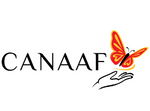Entrez en contact avec une ou un mentor de la FCANAA
Nos mentors de la FCANAA sont là pour vous aider. Il peut être intéressant de parler à une ou un mentor si vous désirez discuter, obtenir un soutien ou des conseils de la part de d’une personne qui comprend ce qu’est la vie avec l’alopécie areata.
Complétez ce formulaire et envoyez-le nous à info@canaaf.org pour entrer en contact avec l’une ou l’un de nos mentors ci-dessous.
Michelle
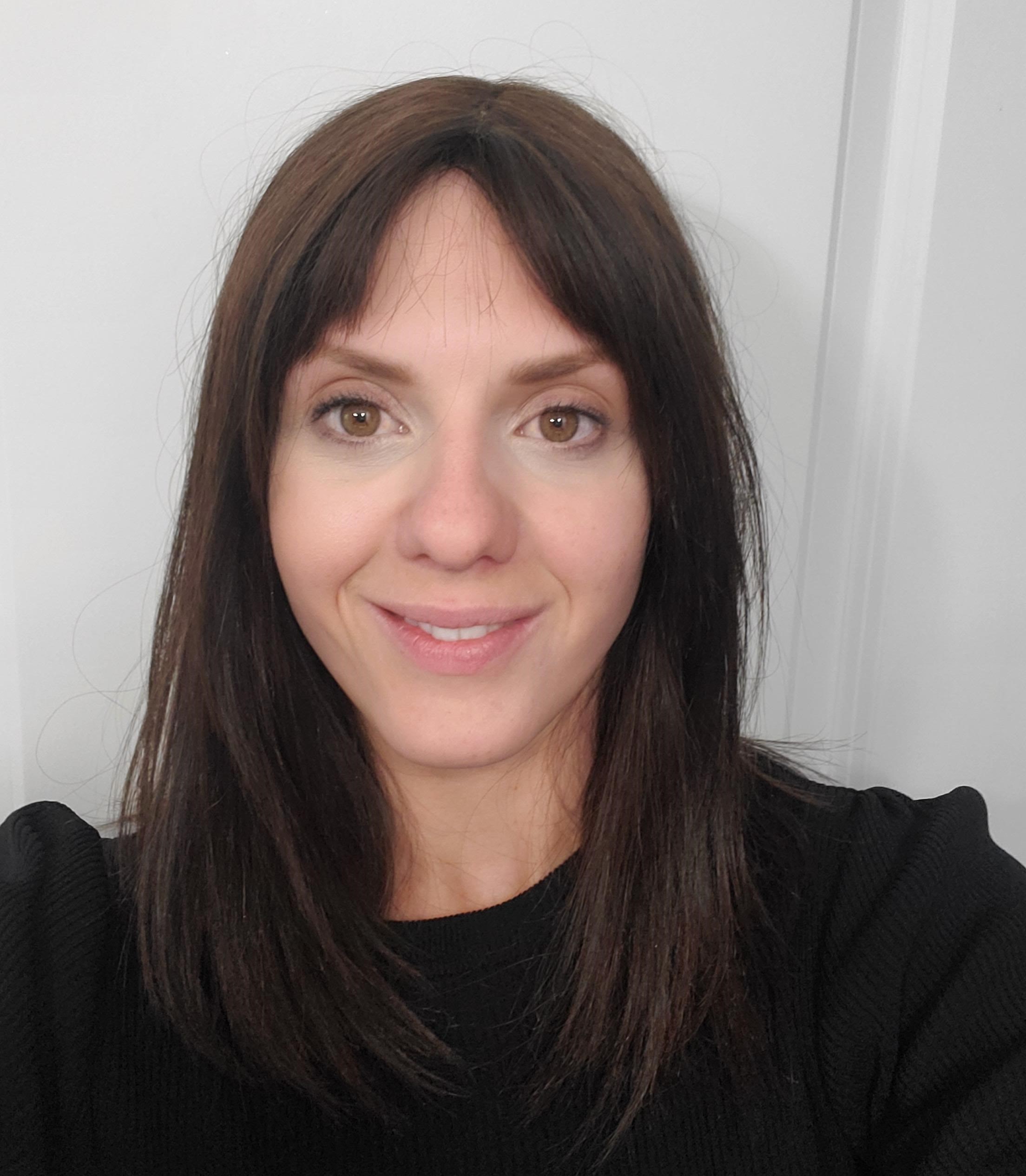
Je m’appelle Michelle Desjardins et je suis de Timmins, en Ontario. Je suis une inalothérapeute spécialisée dans le domaine des soins à domicile. Dans mon rôle, j’établis des relations avec mes patientes et patients et je les aide à accepter leur maladie pulmonaire récemment diagnostiquée. Je les aide à faire face à ce nouveau chapitre de leur vie et je les motive à aller de l’avant. En tant que mentor pour la FCANAA, j’espère pouvoir établir une relation similaire avec mes mentorées et mentorés et les aider dans leur cheminement vers l’acceptation de soi.
J’ai reçu un diagnostic d’alopéciea areata à l’âge de 13 ans, qui a évolué en alopécie universalis. À cette époque, j’avais l’impression que ma seule option était de nier l’existence de ma perte de cheveux. Je refusais de parler de mon alopécie à mes proches, je niais porter une perruque lorsque les autres me le demandaient, et j’évitais la plupart des rencontres sociales par peur de l’inconnu. Je me sentais comme un imposteur dans ma propre vie. Après un problème de santé, j’ai réalisé que j’avais besoin de faire des changements dans ma vie. J’avais besoin de me défaire de ce fardeau et de dévoiler mon secret. Je ressens un tel soulagement et une telle paix depuis que je me suis confiée et que je suis honnête avec moi-même et avec les autres au sujet de mon alopécie.
Je continue à lutter contre l’image que j’ai de moi-même, je continue à me soucier de la perception que les autres ont de moi et, parfois, je continue à souhaiter que mes cheveux repoussent. Mon cheminement vers l’acceptation de soi est toujours en cours, mais la différence entre aujourd’hui et hier, c’est que je refuse désormais de cacher cette réalité sur moi.
Marcy
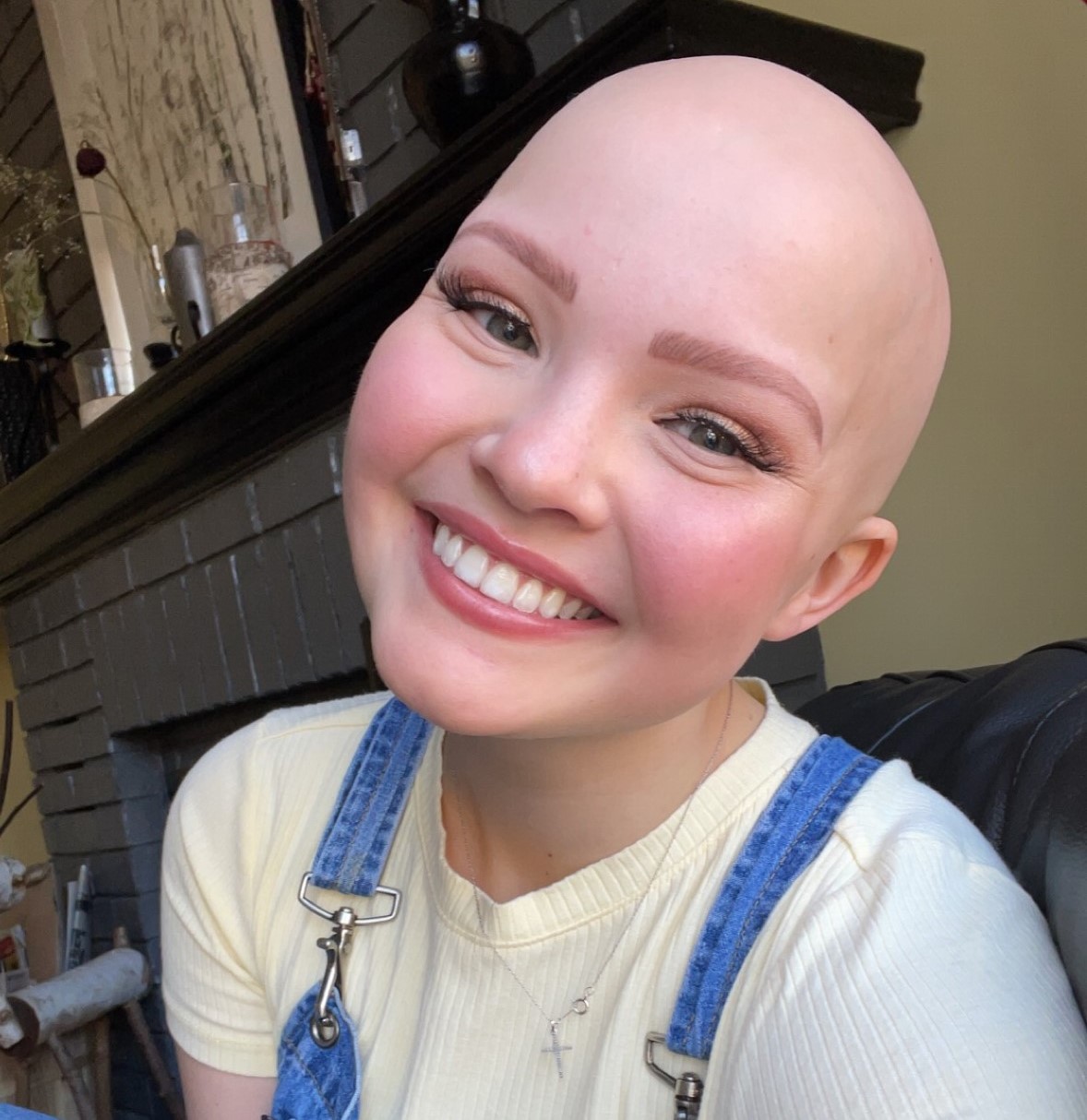
Salut! Je m’appelle Marcy, j’habite à London, en Ontario, et je suis étudiante à plein temps au collège King’s University par le biais de Western. J’ai reçu un diagnostic d’alopécie areata à l’âge de 6 ans. Au début, il s’agissait de petites plaques chauves que je pouvais facilement couvrir avec mes cheveux longs. Quand j’avais 10 ans, j’ai perdu 90 % de mes cheveux. À 19 ans, je suis devenu totalement universalis et j’ai perdu tous les cheveux et poils de mon corps. En raison de mon alopécie et du manque de sensibilisation des élèves à ce sujet, j’ai subi beaucoup d’intimidation et de taquineries pendant mes années au secondaire lorsque ma perte de cheveux est devenue plus apparente. J’ai également dû faire face à la cyberintimidation en plus de l’intimidation en personne. J’ai commencé à porter des perruques à peu près à la même époque pour masquer mon alopécie, mais il était extrêmement difficile de trouver une perruque pour une tête d’enfant. J’ai commencé à faire des présentations devant mes camarades de classe, ce qui m’a conduit à faire une présentation devant toute l’école afin de faire de la sensibilisation à ma maladie. L’alopécie m’a fait grandir incroyablement, elle m’a donné un but, une nouvelle perspective sur le monde et l’envie d’aider les autres à se sentir en confiance dans leur propre peau. J’ai toujours été une leader, et avoir une mentore qui se porte à la défense des intérêts est la seule chose que j’aurais aimé avoir en grandissant comme enfant atteinte d’alopécie.
En aidant d’autres personnes à devenir confiantes dans leur cheminement avec l’alopécie, nous nous rapprochons d’une normalisation de la calvitie. Tout le monde a le droit d’être heureux et de se sentir en sécurité dans sa propre peau. En soutenant les autres, en leur montrant ce que l’alopécie a de merveilleux à offrir et en les aidant à accepter et à assumer leur différence, on ne peut qu’améliorer leur qualité de vie globale. L’alopécie m’a appris à ne pas me fier aux apparences, à embrasser toutes les différences, à aimer chacune et chacun comme elle ou il est, et elle m’a montré à quel point la calvitie peut être belle.
Je fais des comédies musicales depuis l’âge de cinq ans. J’adore chanter, jouer et danser. J’aime aller au théâtre et regarder les films de Disney. J’aime faire du bénévolat et travailler avec les enfants. Un autre de mes passe-temps est de gérer mes plateformes de médias sociaux de sensibilisation à l’alopécie, de faire des tutoriels, des critiques de perruques et de partager mes expériences personnelles. Je suis une vraie extravertie, j’aime rencontrer de nouveaux amis et sortir de la maison.
Alexandra
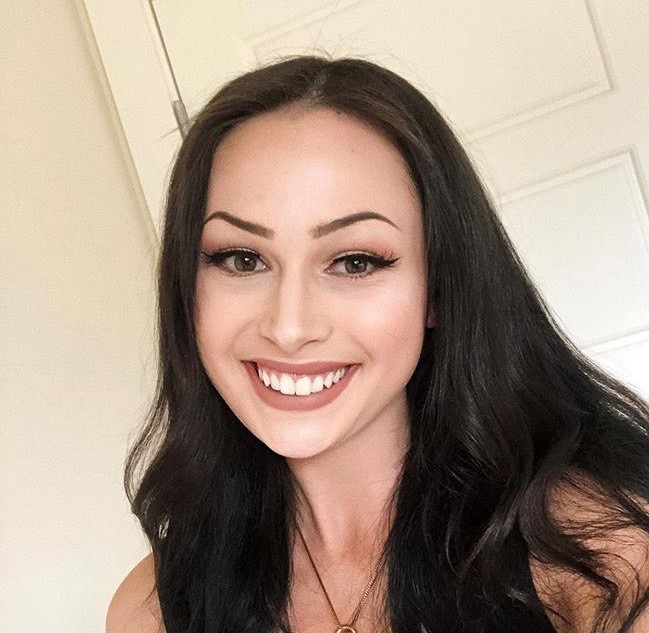
My name is Alexandra Hodder and I am from St. John’s, Newfoundland! I am a 3rd-year Bachelor of Kinesiology (Hons.) student at Memorial University of Newfoundland and also work & volunteer part-time. I am a total nerd and love academics – I am hoping to pursue a career in medicine in the upcoming year! I also compete in powerlifting and have a huge passion for health and fitness. I was diagnosed with alopecia areata at 18 years old, after living with the condition in a number of ways throughout my entire life, from childhood onward. Growing up, I always felt very confused about why my hair looked different than other peoples’, which gave me low self-esteem for many years. As I grew older, I began to understand that there truly was a difference between myself and others in this aspect. It created countless challenges throughout my youth and adulthood – one unique challenge that has presented itself is my relationship with sports while living with alopecia!
In being a mentor, I hope to use my experiences in a constructive and positive way to help guide others similar to myself through related difficulties. I have always felt a responsibility to use adverse experiences and lessons I have learned to guide and support others! One of the main things that I have learned throughout my entire journey is the value of persevering through difficult times and the importance of using those to better yourself in every facet of your life.
Having hair loss does not make you any less worthy – if anything, it can change you for the better with the right mindset and support system! I have learned the importance of a good safety net of family, friends and the alopecia community, and I would love to serve as that for somebody who might not have access to these important figures in their life. When in doubt – reach out!
Dawn
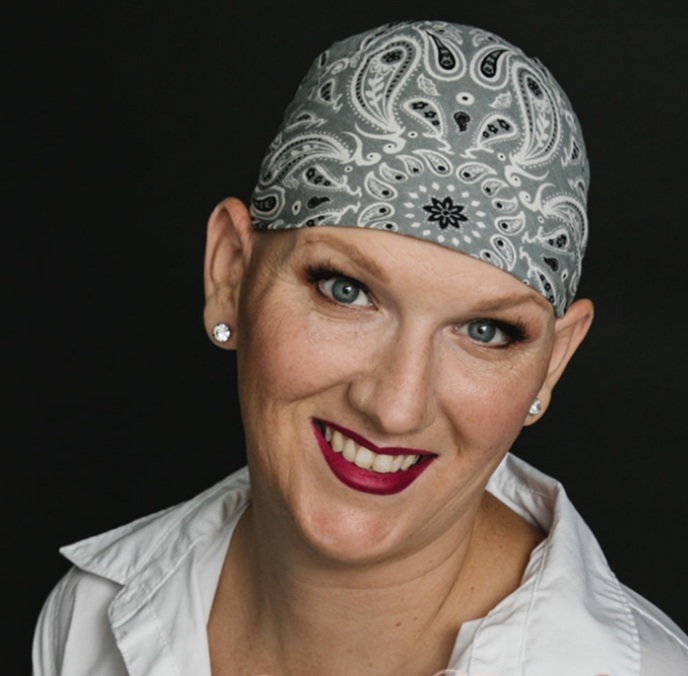
My name is Dawn Knuff and I reside in Barrie, Ontario with my husband and 9 year old triplets. I work full time with the County of Simcoe. I have worked for them for the last 17 years. When I was 7 years of age I lost all my hair within a week and was diagnosed with Alopecia Universalis. I have had Universalis for 30 years now with no hair coming back anywhere on my body.
Growing up with no hair was difficult. I had very few friends and fast tracked through high school as the social aspect of school was hard for me. I have had low self esteem for many years alongside anxiety. Now that I have children of my own I want to show them that they can be anything they want to be. After 30 years I have embraced who I am and am now moving forward with helping others affected by Alopecia, not only the one with Alopecia but the loved ones supporting them.
I want to pass on that no hair does not mean you are not a person just like everyone else and that your feelings don’t matter. We all have to embrace who we are each day and treat others with respect. Having Alopecia for so long I can support children, adolescents, young adults and middle aged adults as I have gone through all those stages with Alopecia myself. In my spare time, which is not much ( 🙂 ) I love to go for walks with my puppy and enjoy my backyard that has a pool.
Jason
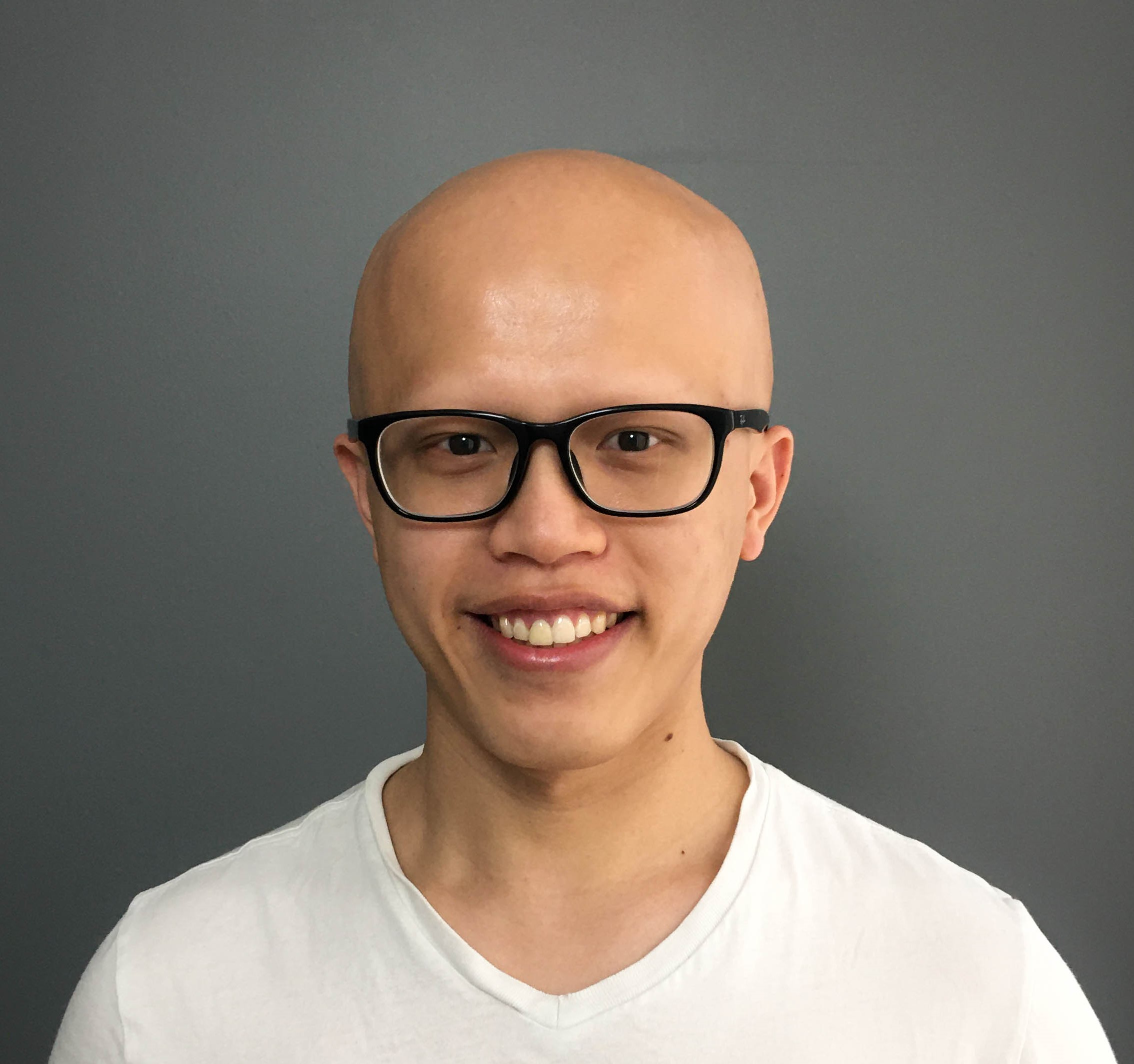
Hello, my name is Jason I currently work as a machine learning engineer in Toronto and was also an Ontario Certified Teacher. I recently graduated with my Master of Science in Computer Science and was previously a visiting graduate student at Stanford. I was diagnosed with Alopecia Areata Universalis when I was 6 years old. Growing up with AA, I always had a difficult time with my self-image. I struggled with my self-esteem – all throughout grade school and up until the 12th grade, I wore a hat – and felt that I had something to be ashamed of. Of course, this wasn’t true! I woke up one day and realized I no longer cared about other peoples opinions of me. Instead I focused on something I knew to be true: I am a delight!
My new-found perspective of my AA has shown me that being bald is something that makes me unique – it is a part of who I am, but that isn’t all that I am. Fast forward to today, I have accepted that having no hair is part of my identity – and I couldn’t be happier.
I’d want others who have been struggling with their AA to know is that happiness is a lot more achievable when you become less concerned with others opinion about you. In my spare time I enjoy reading books, playing board games and painting with my partner!
Zaafir
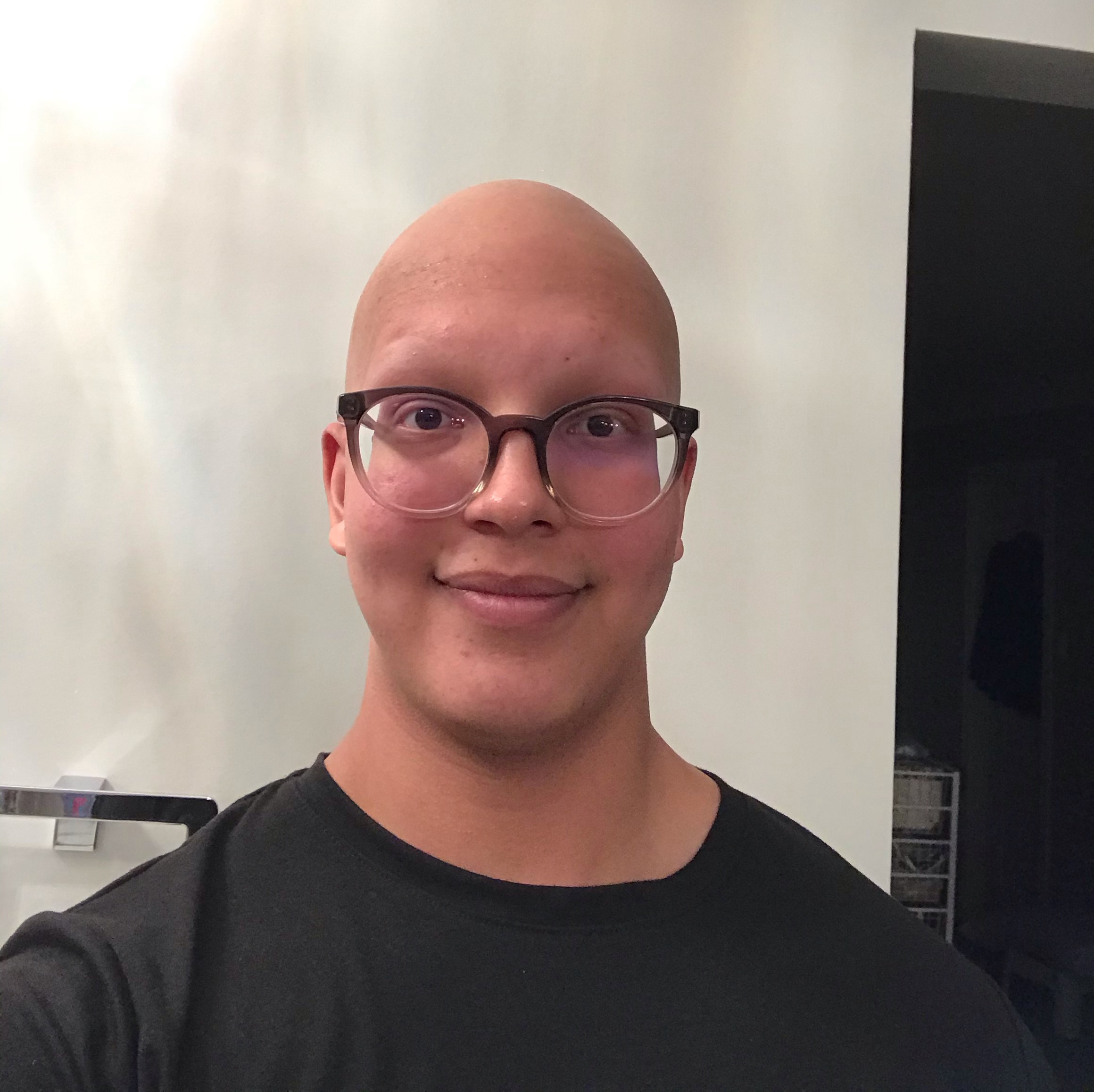
I am a student and I live in Vaughan, Ontario. I was diagnosed with alopecia areata when I was 3 years old and I currently have alopecia universalis, which I acquired at 17. Because I had alopecia areata when I was really young, I didn’t find it all that difficult to accept the hair loss. I think I just began to acknowledge it as something that makes me who I am instead of trying so hard to ‘fix’ it. I am a volunteer with CANAAF because I want to help other people who are going through something similar to what I experienced. I was lucky enough to have a great support system to help me, and I want to be able to provide that to other people as well.
If you are going to hide your alopecia, hide it to give yourself time to come to terms with it, not so that you never have to come to terms with it. Sure, your hair might come back, but those weeks or months or years that you spend feeling down about it is time you will never get back. I love sports, reading, music and video games. I really love talking about books, I mostly read fantasy books but I read the occasional non-fiction, and I hope to write a book of my own someday.
Sharon
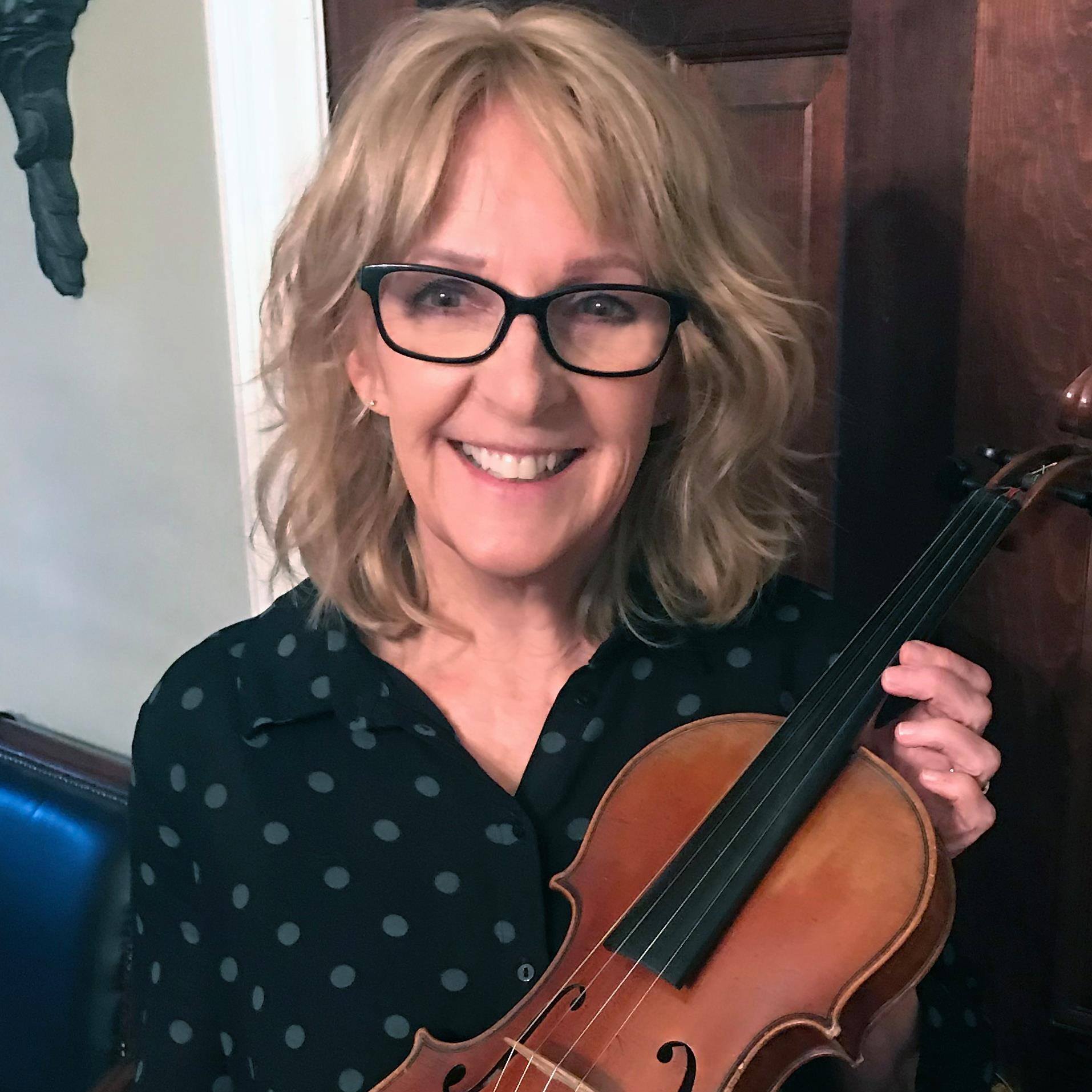
Hello, my name is Sharon Scanlan and I live in mid-town Toronto. I am semi-retired but still do some freelance graphic design. Three years ago, I noticed my hair starting to fall out quite rapidly and lost most of it in a little over a month. Soon after I developed Alopecia Universalis. I am currently enrolled in a Jak inhibitor clinical trial but do not have a lot of hair growth as of yet and I do wear a wig. Alopecia continues to be a big blow to my self-esteem. Within weeks of losing my hair, I had to pivot and purchase a wig for my daughter’s upcoming wedding. I was mortified that people would notice my wig.
The CANAAF website, Facebook group and local support group helped me learn how to deal with this new reality. Talking to others with Alopecia is incredibly helpful in the journey towards acceptance and understanding. In being a mentor, I hope to help ease the sense of feeling lost and alone.
My experience with Alopecia has taught me to be more patient, brave and more accepting. I am fortunate to have three small grandchildren who bring me much joy. I play the violin for enjoyment and was in a community orchestra before Covid. Fitness is a big part of my life as is reading, taking walks, or catching up on the latest movie, documentary or Netflix series.
